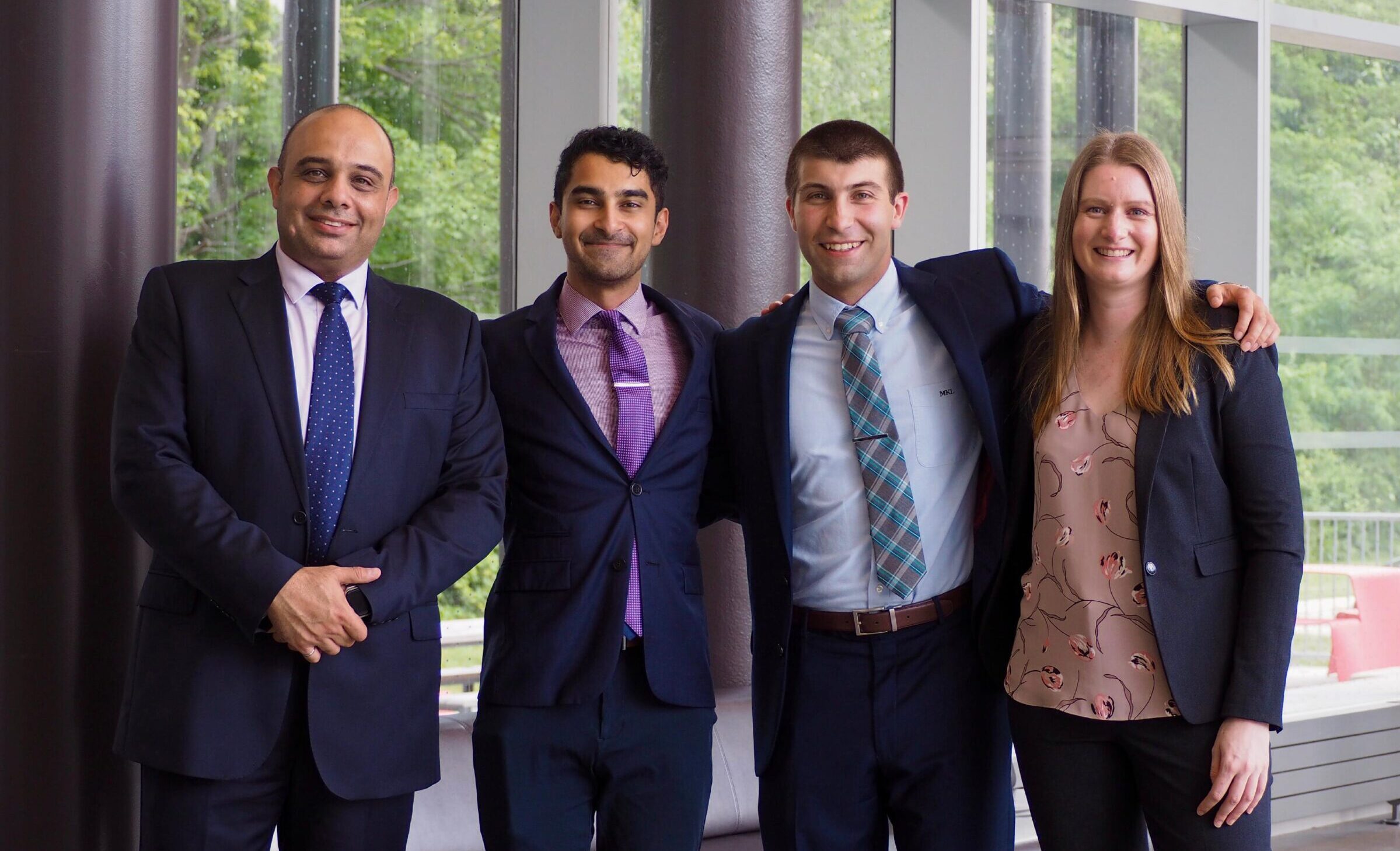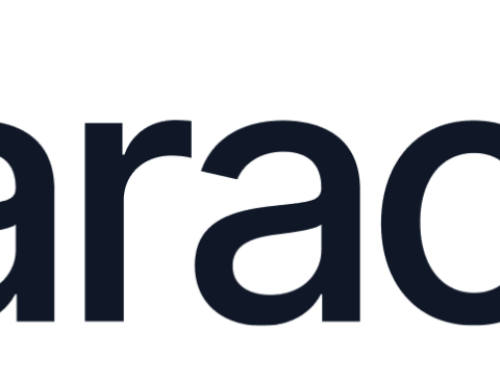Tenomix is a Canadian MedTech startup from London, Ontario, automating cancer tissue processing methods using robotics, ultrasound imaging, and artificial intelligence (AI) with the aim of making these processes more reliable, efficient, and cost-effective for pathology labs. The goal is for these technologies to ultimately lead to better patient care.
Origin Story
Tenomix was born out of a deep personal commitment to improving cancer diagnostics. The company’s co-founder and CEO, Dr. Saumik Biswas, has experienced firsthand the life-changing impact of medical innovation—or the lack thereof. While medical advancements allowed his brother to undergo a successful surgery, the absence of such innovation contributed to the untimely death of his aunt due to improper colon cancer staging.
These experiences ignited a passion in Saumik to pursue medical innovation. After completing his Ph.D. in Pathology and Laboratory Medicine at Western University, Saumik participated in the University’s Medical Innovation Fellowship program, where he collaborated with physicians, clinical scientists, and engineers to identify critical pain points in healthcare. The nearly 11-month-long program, combined with his personal experiences fueled his determination to make a difference leading to the creation of Tenomix.
In December 2020, Saumik along with his co-founders, Michael Lavdas, Dr. Eveline Pasman, and Dr. Sherif Abdou, identified a specific problem in colon cancer staging: the labour-intensive and error-prone process of detecting lymph nodes in excised tissue samples by hand. Recognizing the global implications of this issue, the Tenomix team conducted extensive interviews with clinicians and pathologists worldwide. Their findings confirmed that this was indeed a significant challenge that needed to be addressed. Thus, in July 2021, Tenomix was officially established with the goal of revolutionizing cancer tissue processing.
The Problem
In the field of oncology, accurate staging of cancer is critical for determining the appropriate treatment plan. This process often involves identifying lymph nodes in tissue samples, a task that is currently done manually in pathology labs. For colon cancer, this means that pathology staff must spend hours sifting through fatty tissue to locate lymph nodes, which are then tested to determine the extent of cancer spread.
However, this manual process is time-consuming and prone to errors. In North America, some studies have shown that 30 to 60 percent of hospitals are missing lymph nodes in their analyses, potentially leading to incorrect cancer staging and, consequently, inappropriate treatment plans. The labour-intensive nature of this work also results in significant financial losses for labs, with some losing more than $900 per sample due to inefficiencies. If cancer is over-staged, costs can exceed $226,000 per patient due to unnecessary invasive treatments, while under-staged cancer, which can progress and cost lives, may result in losses of $80,000 per person.
Tenomix recognized that there was a critical need for a more reliable, efficient, and cost-effective solution to this problem. The company set out to develop a technology that would automate the lymph node detection process, enabling a more consistent and confident search, which ultimately supports downstream cancer staging tests and patient care.
The Tenomix Solution: Robotics, Ultrasound Imaging, and AI
At the core of Tenomix’s innovation is their device called the Lymphonator. The device combines robotics, ultrasound imaging, and AI to automate the process of lymph node detection. This device significantly reduces the time and effort required to identify lymph nodes in tissue samples.
Here’s how it works: The pathology staff places the excised tissue specimen into the Lymphonator and presses start. The robot then activates, using ultrasound imaging to scan the tissue. As the scan progresses, the AI analyzes the ultrasound images to locate lymph nodes, instructing the robot to then mark the positions of the lymph nodes automatically. This automation allows pathologists to focus on other critical tasks, knowing that the lymph nodes will be identified for subsequent testing.
This innovation not only streamlines the workflow in pathology labs but it also has the potential to reduce the likelihood of missed lymph nodes, which is crucial for accurate cancer staging. By reducing the manual labour involved and increasing the reliability of the process, Tenomix is making a significant contribution to the field of cancer diagnostics.
The Future of Tenomix and World Lymphoma Awareness Day
As Tenomix continues to develop its technology, the company envisions a future where robotics, AI, and automation will play a central role in pathology labs worldwide. The technology Tenomix is building has the potential to be adapted for other clinical applications, transforming the way various types of cancers are diagnosed and treated.
On World Lymphoma Awareness Day, Tenomix reaffirms its commitment to advancing cancer diagnoses and improving patient outcomes:
“Early diagnosis is super critical for any cancer, and the reason for that is because it allows for more tailored, specific approaches in medicine that can help clinicians accurately identify a particular disease and this information would also guide clinicians in making more informed treatment decisions. Our work at Tenomix contributes to the broader field of cancer research by enhancing the precision and efficiency of lymph node assessments and these assessments are essential in the diagnostic evaluation, prognostic assessment, and staging of various cancers, including lymphoma.” -Dr. Saumik Biswas
While the company’s current focus is on colon cancer, the innovations they are developing have far-reaching implications for the broader field of oncology. By improving the precision and efficiency of lymph node detection, Tenomix is laying the groundwork for future innovations that could one day enhance different cancer diagnoses including lymphoma:
“Our long-term vision is to expand the technology’s applications and build new innovations to aid in the fight against other types of cancers” -Dr. Saumik Biswas
Tenomix’s Progress and Achievements
Looking ahead, Tenomix is excited about bringing their groundbreaking device closer to commercialization. In the first two quarters of this year alone, Tenomix filed national patent applications in 10 strategic regions and successfully completed a one-year engagement with the leading US hospital, with ongoing collaborations at that institution and several top Canadian Hospitals. They are also currently working on transitioning from their current prototype to a pre-production unit that closely resembles the final commercial unit, which positions the company for the next phase of development. Dr. Eveline Pasman, COO and Co-founder of Tenomix shares that she’s, “very excited to show [the new device] to pathology staff and have them use it to gather more valuable feedback on its usability.”
The company is also beginning to explore the global impact of their technology, conducting interviews with clinicians around the world to better understand the broader implications of their innovation at an international scale.
Early Stage Investment and Archangel’s Impact
Tenomix closed an oversubscribed seed round, raising over CAD $2.1 million. The investment from Phoenix Fire, an Archangel fund, provided Tenomix with the financial resources to fuel research and development, hire top talent, and acquire the necessary equipment to advance their technology. Besides financial support, Co-founders Eveline and Saumik are grateful for the guidance, expertise, and network of contacts that early-stage investors and Archangel have provided them with:
“Overall, early-stage investment not only provided the financial resources necessary for us to fuel our growth but strengthened our confidence to push the boundaries of what’s possible in medicine. I feel that my team and I were super empowered with this investment from Phoenix Fire, and Archangel, and it will allow us to lay a strong foundation for long-term success, leaving a massive impact in the healthcare field. We’re super thankful for all the support.” -Dr. Saumik Biswas




